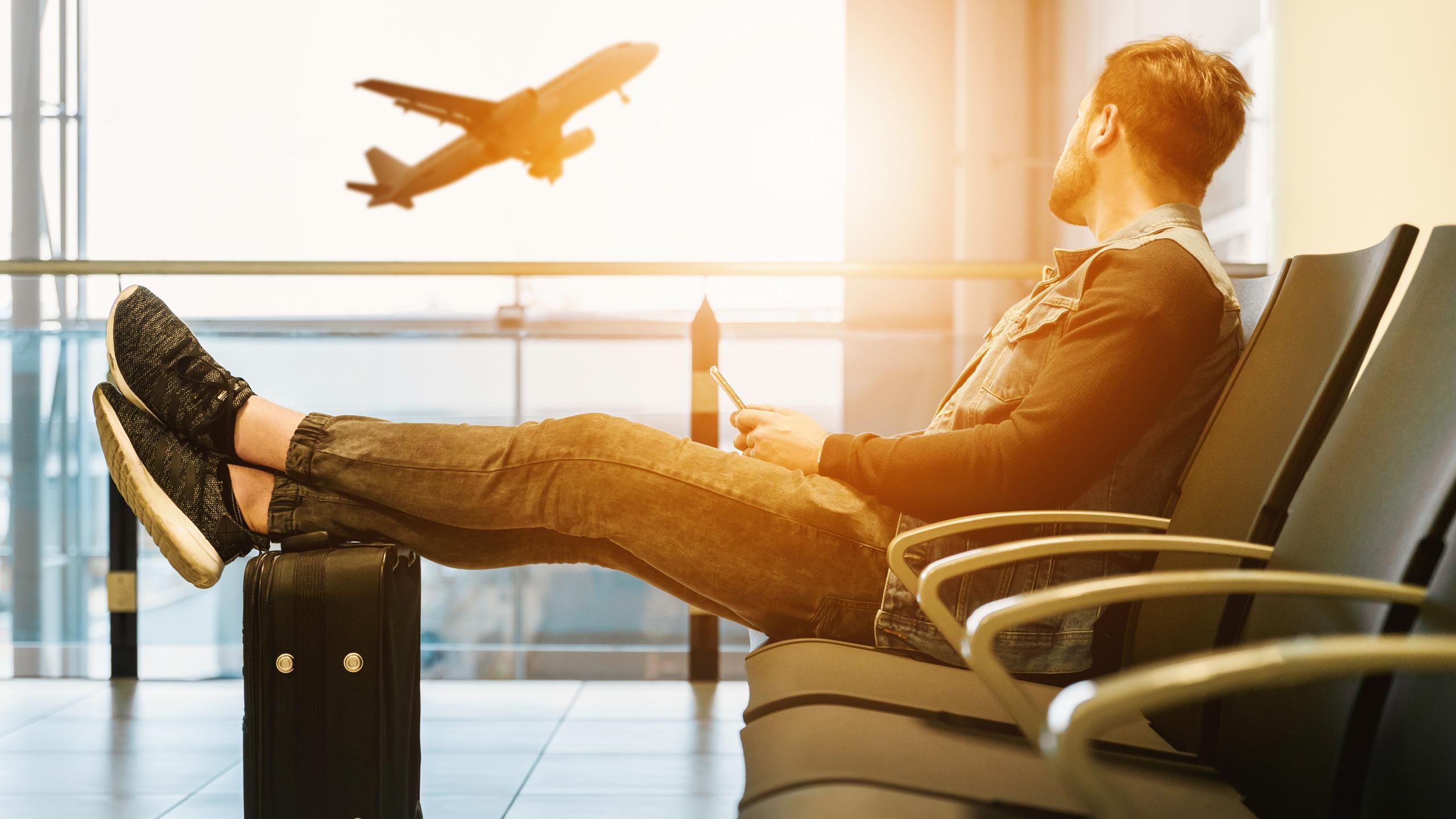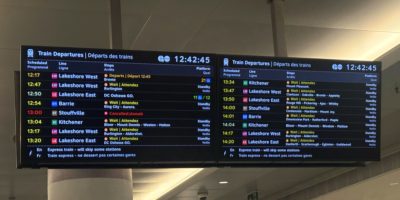By Sarah Tomlinson
Although international students are eager to come back to Toronto, they say the uncertainty surrounding in-person classes combined with the high monetary cost of quarantining makes it difficult to plan for the upcoming 2021-2022 school year.
The Eyeopener previously reported that Ryerson president Mohamed Lachemi said the university will provide a “thorough update” on the fall semester by June 9, which is 90 days before the start of the fall 2021 semester.
In an interview with The Eye, Lachemi said 90 days is the minimum amount of time and that the timeline may change if public health guidelines become clearer.
“We have too many parameters, too many factors that are outside of our control. I think it’s too early from now to make an announcement about the plan in September,” he said. “We want to be as accurate as possible.”
Sofia Bant, a third-year international film studies student currently living in Brazil, said she’ll move back to Toronto regardless of whether school ends up being in-person or not.
Apart from the fact that she’s been paying for an apartment she hasn’t lived in all year, she said she wants to physically be in Toronto for her fourth year to complete her thesis film—one of the program’s biggest milestones.
“I wouldn’t miss that opportunity,” she said, adding that she spent her first two years grounding herself at Ryerson.
“I really worked hard to plant my feet in the city, get to know people and get a job,” said Bant.
“We have too many parameters, too many factors that are outside of our control”
Jennifer Nguyen is a second-year journalism student living in Hanoi, Vietnam. She said she’s comfortable with having three months to move back to Toronto since she has already rented a place in the city.
“The wait can be anxiety-inducing, but it probably will really minimize chances of having to re-adjust or make last minute changes for both [Ryerson] and us students,” she said.
She added that if she decides to come to Toronto and public health restrictions tighten once again, it’ll be difficult for her to return to Vietnam.
According to Reuters, Vietnam is only allowing Vietnamese citizens returning home, foreign diplomats and business investors to enter the country.
From Feb. 1 until further notice, anyone entering Vietnam must undergo medical checks and a 21-day quarantine upon arrival, according to the Vietnam National Administration of Tourism.
In July 2020, Nguyen said she was only permitted to go back on a government-operated repatriation flight after signing up and waiting for nearly four months.
Nguyen said flying out of Vietnam to Canada would not be a problem for her since she is on a student visa, but she doesn’t plan to come back to Canada unless there’s at least one in-person class in her schedule.
“I really hope whatever decision I have to make works out to be very certain in the long run,” she said. “When our world is changing every day it’s really hard for anyone to plan anything so I think we can only try to adjust.”
Adhering to public health measures
In particular, Nguyen said she still faces other problems related to moving back, like the cost of quarantining in a hotel for three days.
As of Feb. 22, air travellers returning to Canada have had to quarantine in a hotel at their own expense for 72 hours while waiting for the result of their COVID-19/PCR test in an effort to reduce international travel and the spread of COVID-19 and its variants. Following their hotel stopover, they have to complete a 14-day quarantine at their location of choice.
Although Prime Minister Justin Trudeau had announced that the cost of hotels would exceed $2,000 in total, nightly rates at the Alt Hotel Toronto Airport and the Sheraton Gateway Hotel in Toronto have been much lower, CTV News previously reported.
However, Nguyen said she still hopes that by the time she comes to Canada in fall 2021, it is safe enough to return so the imposed quarantine will be removed.
“It’s a very hefty price tag for students just trying to comply with their university’s plans—not all of us have extra cash,” she said, adding that international students are relying on their parents’ salaries and continuous work to afford tuition.
“When our world is changing every day it’s really hard for anyone to plan anything so I think we can only try to adjust”
Bant said expecting international students to pay around $2,000 to stay in a hotel is a lot to ask.
“I know the school is probably doing everything they can but at the same time, how is any student that isn’t super rich going to be able to afford putting out $2,000 to go back to Canada if there’s no in-person classes?” she said.
She added that she hopes Ryerson will provide financial assistance to cover at least part of the cost.
Bant also said she’s also worried about entering Canada from Brazil, especially if she isn’t vaccinated by September.
Brazil currently has the highest daily infection and daily death count in the world which experts believe was caused by its deadly P1 variant, according to Forbes.
George Sukhinin said he had no idea he’d be spending his entire third year abroad as a business management student when he went back home to Russia on June 15, 2020. Now entering his fourth year in fall 2021, he’s patiently waiting for Ryerson’s announcement as to whether school will be in-person or online.
Sukhinin said if the fall semester does end up being in-person, 90 days is “more than enough” time for him to purchase plane tickets, move back to Toronto and find an apartment.
He said he also supports Ryerson’s willingness to plan around public health guidelines.
“They depend on the government. It’s not just their decision,” he said.
However, Sukhinin said it’s difficult trusting the university’s decision knowing that the situation might change.
He added that quarantining for 14 days after staying in the hotel for 72 hours would be very challenging when he isn’t able to get food for himself.
Although he doesn’t plan on living in residence in his fourth year, he hopes Ryerson will offer the use of residences to complete the 14-day quarantine for international students.
“Hopefully the university is going to provide some assistance because we pay so much money,” he said.
According to Ryerson’s website, residence students are able to complete their 14-day travel self-isolation period within residence. International Student Support (ISS) also offers support for students searching for suitable quarantine locations.
In an email to The Eye, Lyn-Marie Farley, senior manager at the International Student Support & Intercultural Learning, said ISS has been supporting international students with their arrival through Ryerson’s COVID-19 readiness plan since Nov. 17, 2020.
This includes helping students coordinate a location to carry out their mandatory 14-day quarantine period through a partnership with Ryerson’s Housing and Residence Life team and an off-site hotel partner “to ensure students’ safe and comfortable experience in isolation.”
ISS said it has also arranged transportation and meal plans for inbound students, implemented a student support program that includes daily check-ins throughout their quarantine period and “enhanced outreach with students prior to their departure from their home country so they have proper documentation before entering the country.”
Bant said she’s appreciated Ryerson’s support, but she hopes the school could also consider offering more mental health support, especially for students who’ve lived in countries where the pandemic has hit hardest in terms of deaths and restrictions.
“I might need to reach out to the school for resources to rebalance myself after coming from a situation like the one in Brazil,” she said. “It affects everyone’s lives so personally that I think they should really have a little bit more of a human approach, instead of treating [international students] as a huge group.”












Leave a Reply